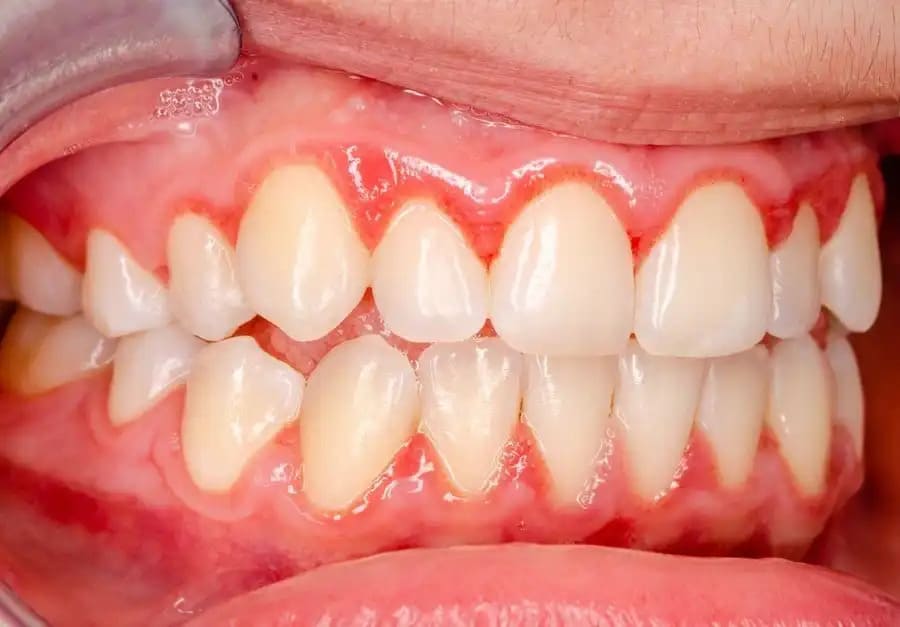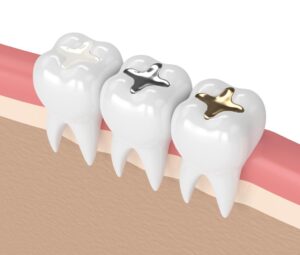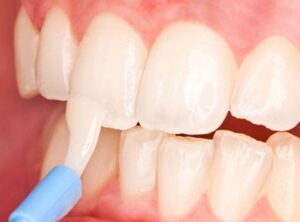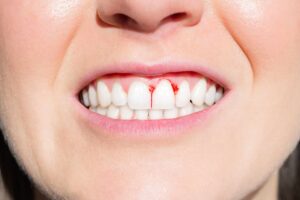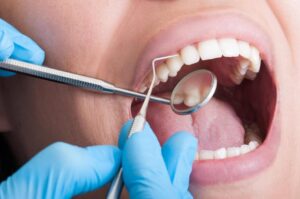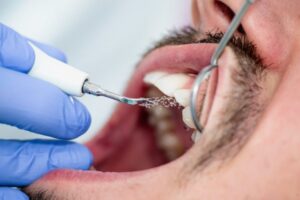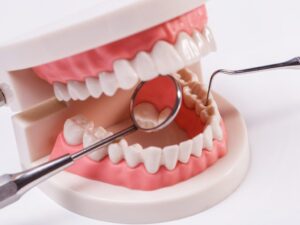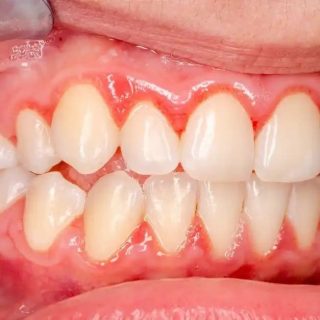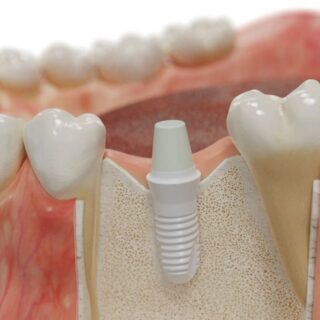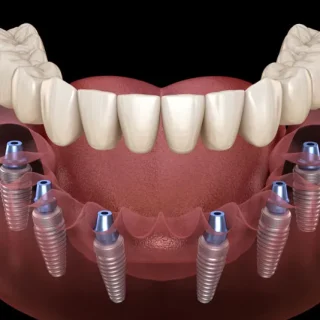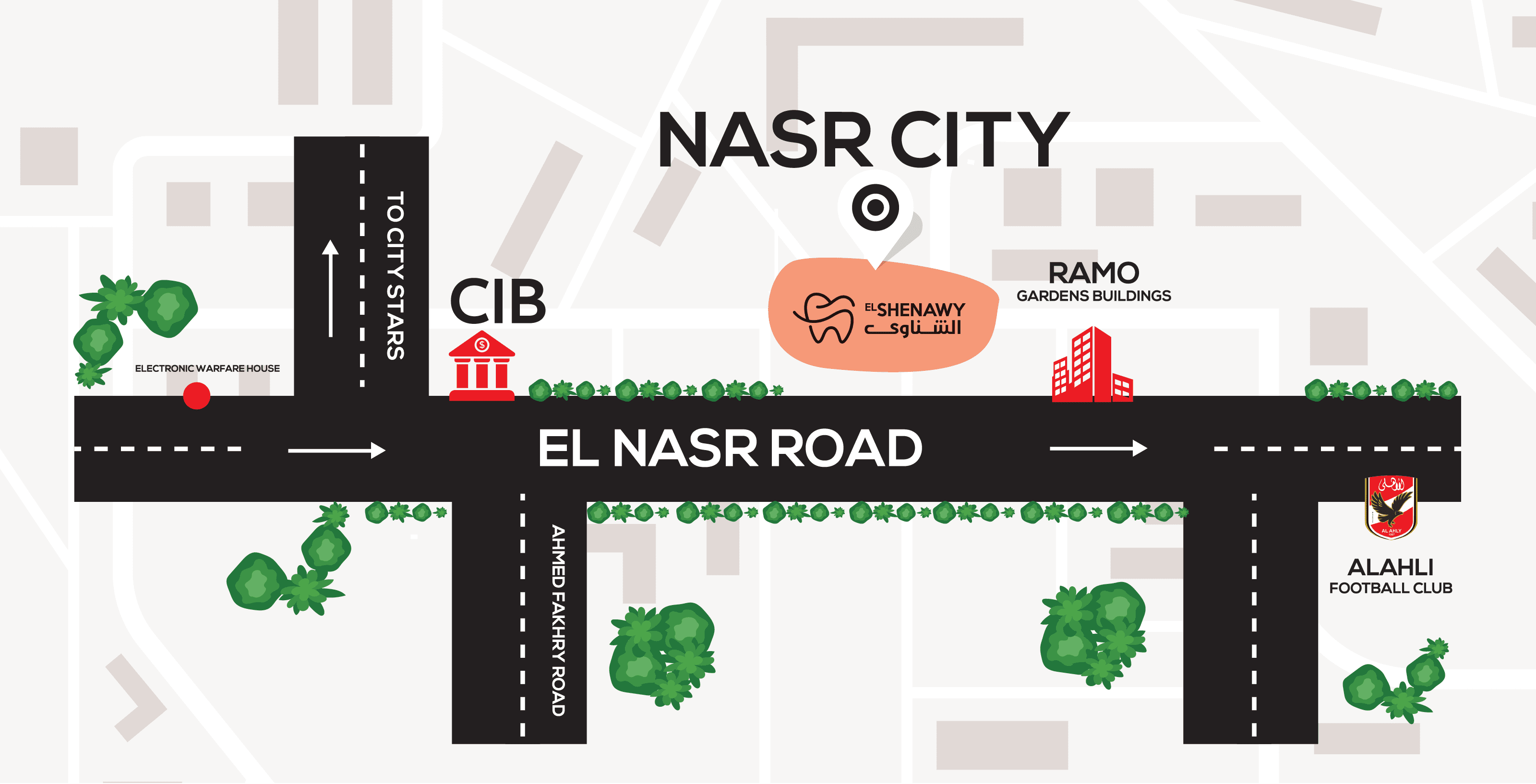Our mouths naturally contain bacteria, but when this bacteria builds up excessively, it can lead to gum disease. Both Gingivitis and Periodontal are types of gum disease, but of the two, gingivitis is the least severe and has the least impact, causing gum inflammation that many adults experience at some point. Untreated gingivitis can progress into periodontitis, a more serious gum disease that includes inflammation and damage to the supporting tissues and bone of your teeth.
Understanding these conditions and recognizing their signs early is key to maintaining healthy gums and preventing long-term damage.
How do Gingivitis and Periodontal differ?
Gingivitis is the first and less severe type of gum disease. It begins when plaque, tartar, and bacteria build up on the teeth, leading to red, swollen, and bleeding gums. Early intervention, proper oral hygiene, and professional cleanings by your dentist can all help treat gingivitis.
If gingivitis is untreated and keeps getting worse, it can eventually be termed periodontitis, which is a more serious diagnosis. Periodontitis involves inflammation not just of the gums, but also the bone and connective tissue that hold your teeth in place. Over time, this can lead to gum recession, loose teeth, and even tooth loss.
Common symptoms of gingivitis
- Red, swollen, or puffy gums
- Bleeding gums, especially when brushing or flossing
- Receding gums (your teeth may appear longer)
- Persistent bad breath (halitosis), even after brushing
- Sore or tender gums
- Sensitivity to hot or cold foods
- Discomfort or pain while chewing
Additional signs related to periodontitis
In addition to the early symptoms of gingivitis, periodontitis brings more advanced and alarming signs that signal the condition has progressed. These symptoms often reflect deeper damage to the structures supporting your teeth.
key signs:
- Advanced gum recession, where gums pull away from the teeth, forming deep gum pockets.
- Loose or shifting teeth.
- New gaps forming between your teeth.
- Pain while chewing or biting.
- Dental abscesses (pus-filled pockets along the gum line).
- X-rays showing visible bone loss or change in how your teeth fit together.
- Poor fit of dental devices, such as partial dentures or retainers.
Main causes of gingivitis and periodontal disease
The primary culprit behind both gingivitis and periodontal disease is poor oral hygiene. When daily brushing and flossing are neglected, plaque builds up on your teeth. Over time, if not removed, plaque hardens into tartar (calculus), which settles beneath the gum line and becomes much more difficult to clean.
Your body responds to this bacterial buildup with inflammation, which causes the red, swollen, and bleeding gums seen in gingivitis. If left untreated, this ongoing inflammation damages the supporting structures of your teeth, eventually leading to periodontitis.
Core causes include:
- Inadequate brushing and flossing.
- Failure to get regular dental cleanings.
- Poor nutrition, particularly one that is high in sugar and low in nutrients.
- Bacteria build-up causes long-lasting plaque and tartar.
Risk factors for getting gum disease
- Smoking or chewing tobacco, which significantly weakens gum tissue and slows healing.
- Hormonal changes, such as during puberty, pregnancy, or menopause, which make gums more sensitive.
- Chronic medical conditions which affect the body’s ability to fight infection.
- Family history of gum disease, suggesting a genetic predisposition.
- Stress, which can impair your immune response and increase inflammation.
- Poor nutrition, especially a lack of vitamin C and other key nutrients.
- Misaligned or crooked teeth that are harder to clean, trapping more bacteria.
Best options available for treating gum diseases
Treating gum disease will depend on how severe it is, whether it is mild gingivitis or severe periodontitis.
For Gingivitis (Early Gum Disease)
- Improved oral hygiene: Brushing daily, and using the proper technique can drastically reduce plaque and inflammation.
- Professional dental cleaning:A professional cleaning from your dentist is the only way to remove plaque and tartar that your toothbrush can’t reach.
- Antimicrobial or antiseptic mouthwash: These rinses reduce harmful bacteria and promote healing.
- Dental work adjustments: If you have improper fitting for crowns or fillings, your dentist may reshape or replace them to prevent plaque accumulation in hard-to-clean spots.
For Periodontitis (Advanced Gum Disease)
- Scaling and root planing: A deep cleaning procedure that removes plaque and tartar from beneath the gum line and smooths the tooth roots to discourage bacterial buildup.
- Antibiotics: Either oral or topical antibiotics may be prescribed to help control persistent infection.
- Open surgeries: In severe cases, your dentist may gently open the gums to clean deep-rooted infection and then suture the tissue to promote healing.
- Tissue or bone grafts: For significant gum or bone loss, grafting procedures restore your gum line or rebuild bone around your teeth to stabilize their structure.
If you’re considering cosmetic treatments like teeth whitening to restore your bright smile, check out our teeth whitening price at El-Shenawy Dental Centers
Daily Tips to keep your gums healthy
- Brush twice: once at the beginning and once at the end of the day.
- Floss every day to eliminate bacteria that forms between your teeth.
- Eat a balanced diet with minimal sugar and rinse your mouth after consuming sugary foods or drinks.
- Don’t smoke or use tobacco products.
- Manage health conditions like diabetes.
- Schedule routine checkups with your dentist.
Think you might have gingivitis? Visit El-shenawy dental centers
If you notice any unusual symptoms such as swollen, red, or bleeding gums, persistent bad breath, or tenderness while chewing, these could be early signs of gingivitis or the more advanced periodontitis. Ignoring these signs can lead to irreversible damage to your gums and teeth. Early detection and intervention are the key to stop its progress and keep your mouth as healthy as you can. At El-Shenawy Dental Centers, our skilled professionals offer comprehensive exams and personalized treatment plans to help you manage and even reverse both gingivitis and periodontitis
Don’t wait until it’s too late! Book a Visit at El-Shenawy Dental Centers Today.



